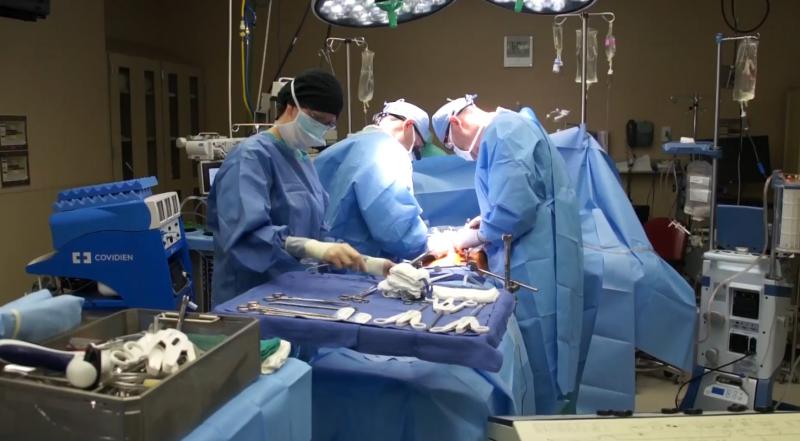
by Jim McLean, Kansas News Service
Doctors at the University of Kansas Hospital say a change in the distribution of livers across the country could result in Kansans waiting longer for life-saving transplants.
So they’re backing a bill in the Kansas Legislature that would allow residents who donate their organs to specify whether they want them used to benefit Kansas transplant patients.
“The purpose of the Kansas Donor Rights act is to bring the conversation to the forefront,” said Sean Kumer, a liver transplant surgeon at KU.
Changes in the system used to distribute livers for transplant essentially nationalizing the system have yet to be completed.
For years, organs have been distributed within regions. That worked well for states, like Kansas, where donor rates were high. It worked less well in states, such as New York and California, where the need for donated organs was high but donor rates were relatively low.
“Here in the Midwest we have a very giving population,” Kumer said, noting that Kansas’ donor rate is consistently around 80 percent compared to 55 percent on the East and West coasts.
The U.S. Department of Health and Human Services ordered the scrapping of the geography-based system after six patients awaiting transplants in California, New York and Massachusetts sued the agency.
“The practical effect of the new policy will be to redistribute livers from states and regions with high rates of organ donation to areas that have historically underperformed,” U.S. Sens. Jerry Moran of Kansas and Roy Blunt of Missouri said recently in a guest commentary in The Kansas City Star.
The new policy would disproportionately affect patients rural areas, the senators said.
“This shortsighted liver allocation policy … will not only mean fewer life-saving organs in our part of the country, but it will also adversely affect health outcomes throughout the Midwest,” they said.
In an interview with Modern Healthcare, Sander Florman, director of transplantation for New York’s Mount Sinai Health System, defended the new allocation system.
“In a system that is fundamentally handicapped by having too few organs for too many patients that need them, decisions need to be made and should favor saving the most lives and helping the sickest of our patients first,” Florman said.
If that is the criteria, Kumer said, preference should be given to regions where higher percentages of patients are dying while awaiting surgery. In Kansas, he said, approximately 20 percent of liver transplant patients die on the waiting list compared to about 8 percent in New York.
“Our (mortality) numbers are going to increase and theirs are going to decrease and that’s just not the way we should be running our system,” Kumer said.
The legality of the Kansas legislation could hinge on whether the courts buy the argument that an organ donation is a personal gift, Kumer said.
“It’s a gift, not a natural resource,” he said. “Donors and their families … should have the choice of where they want their organs to go.”
The bill was introduced late, but its chances of passing are improved by the fact that it has the backing of Senate Majority Leader Jim Denning, an Overland Park Republican.
“It will get a hearing soon and we will address it this session,” Denning said.
Jim McLean is the senior correspondent for the Kansas News Service, a collaboration of KCUR, Kansas Public Radio, KMUW and High Plains Public Radio covering health, education and politics. You can reach him on Twitter @jmcleanks.
Kansas News Service stories and photos may be republished at no cost with proper attribution and a link to ksnewsservice.org.
See more at https://www.kcur.org/post/lawmakers-could-side-ku-hospital-officials-keep-transplant-livers-kansas
